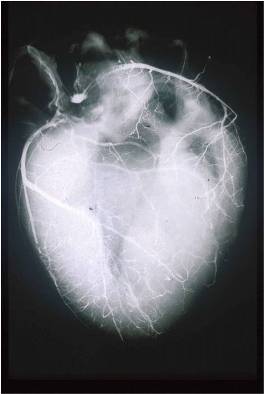Difference between revisions of "Category:Cardiomyopathy"
Jump to navigation
Jump to search
| (5 intermediate revisions by 2 users not shown) | |||
| Line 2: | Line 2: | ||
|pagetitle =Cardiomyopathy | |pagetitle =Cardiomyopathy | ||
|pagebody = <div style="text-align: left; direction: ltr; margin-left: 1em;"> | |pagebody = <div style="text-align: left; direction: ltr; margin-left: 1em;"> | ||
| − | Cardiomyopathies are diseases affecting the cardiac | + | Cardiomyopathies are diseases affecting the myocardium (cardiac muscle), causing dysfunction. Primary cardiomyopathies are characterized by having an unknown cause while secondary cardiomyopathies have an identifiable cause. The primary cardiomyopathies will be the centre of our discussion. |
| − | ''' | + | '''Primary cardiomyopathies include:''' |
# [[Dilated Cardiomyopathy|Dilated Cardiomyopathies]] | # [[Dilated Cardiomyopathy|Dilated Cardiomyopathies]] | ||
# [[Hypertrophic Cardiomyopathy|Hypertrophic Cardiomyopathies]] | # [[Hypertrophic Cardiomyopathy|Hypertrophic Cardiomyopathies]] | ||
# [[Restrictive Cardiomyopathy|Restrictive Cardiomyopathies]] | # [[Restrictive Cardiomyopathy|Restrictive Cardiomyopathies]] | ||
| − | # | + | # Arrhythmogenic Right Ventricular Cardiomyopathy |
| − | + | Cases that do not fit the diagnostic criteria for any one particular one of these cardiomyopathy phenotypes are usually assigned a diagnosis of ''unclassified cardiomyopathy''. | |
| − | ''' | + | |
| + | '''Secondary cardiomyopathies include:''' | ||
# Infectious (e.g. Parvovirus, Toxoplasmosis) | # Infectious (e.g. Parvovirus, Toxoplasmosis) | ||
| Line 20: | Line 21: | ||
# Nutritional (e.g. L-Carnitine deficiency, Taurine deficiency) | # Nutritional (e.g. L-Carnitine deficiency, Taurine deficiency) | ||
# Toxic (e.g. Lead, Doxorubicin, Monensin) | # Toxic (e.g. Lead, Doxorubicin, Monensin) | ||
| + | |||
| + | [[Feline Cardiomyopathies]] | ||
</div> | </div> | ||
|contenttitle =Content | |contenttitle =Content | ||
| Line 26: | Line 29: | ||
</b></big> | </b></big> | ||
| − | |logo = | + | |logo =Heart logo.jpg |
}} | }} | ||
| Line 37: | Line 40: | ||
[[Category:Cardiac Diseases - Horse]] | [[Category:Cardiac Diseases - Horse]] | ||
[[Category:Cardiac Diseases - Cattle]] | [[Category:Cardiac Diseases - Cattle]] | ||
| + | [[Category:Cardiac Diseases - Pig]] | ||
| + | [[Category:Cardiology Section]] | ||
Latest revision as of 08:20, 4 May 2016
Cardiomyopathy
Cardiomyopathies are diseases affecting the myocardium (cardiac muscle), causing dysfunction. Primary cardiomyopathies are characterized by having an unknown cause while secondary cardiomyopathies have an identifiable cause. The primary cardiomyopathies will be the centre of our discussion.
Primary cardiomyopathies include:
- Dilated Cardiomyopathies
- Hypertrophic Cardiomyopathies
- Restrictive Cardiomyopathies
- Arrhythmogenic Right Ventricular Cardiomyopathy
Cases that do not fit the diagnostic criteria for any one particular one of these cardiomyopathy phenotypes are usually assigned a diagnosis of unclassified cardiomyopathy.
Secondary cardiomyopathies include:
- Infectious (e.g. Parvovirus, Toxoplasmosis)
- Infiltrative (e.g. Neoplasia)
- Metabolic (e.g. Endocrine disorders)
- Nutritional (e.g. L-Carnitine deficiency, Taurine deficiency)
- Toxic (e.g. Lead, Doxorubicin, Monensin)
Pages in category "Cardiomyopathy"
The following 4 pages are in this category, out of 4 total.
